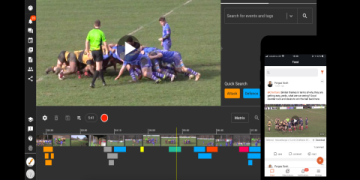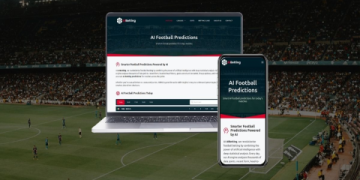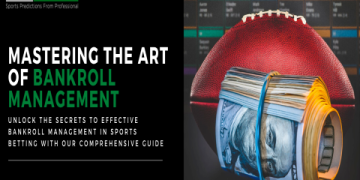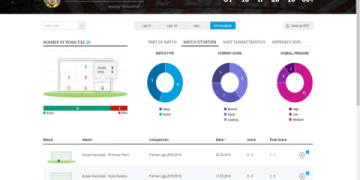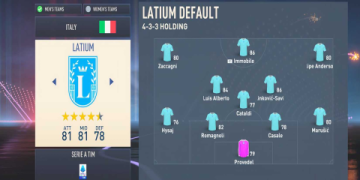# Introduction
Have you ever watched ESPN and wondered how to become a sports analyst yourself? The media landscape is booming, and sports analytics are at the heart of every thrilling panel discussion, in-depth post-game breakdown, and trending online debate. But what does it really take to get into this field—and thrive? Whether you’re a numbers fanatic or a lifelong sports enthusiast, this ultimate guide reveals exactly how to become a sports analyst, explains the must-have skills, and shares real-world shortcuts to set yourself apart.
# What Is a Sports Analyst?
Before diving into the how-to, let’s get clear on the role. A sports analyst is someone who interprets sports data, identifies trends, and communicates insights. Analysts work in television, digital media, team front offices, and betting platforms. According to the U.S. Bureau of Labor Statistics, jobs related to sports analysis—including statisticians—are projected to grow 33% from 2020 to 2030, bursting far ahead of average (来源: [BLS.gov]).
# Essential Skills for Sports Analysts
So, how to become a sports analyst with credibility? Here are the skills pros swear by:
– Analytical Thinking
– Communication
– Technical Aptitude
– Deep Knowledge of Sports

– Data Visualization
Let’s break these down. Analytical thinking is non-negotiable; you solve problems with logic and creativity. Communication matters because your insights are only valuable if others can understand them. Technical aptitude includes mastering tools like Excel, SQL, and sometimes Python. Of course, you need an encyclopedic knowledge of your chosen sport. Lastly, data visualization skills help you make complex findings visually appealing.
# Step-by-Step Guide: How to Become a Sports Analyst
Ready to take action? Here’s a straightforward path based on expert advice and real hiring trends.
1. DEFINE YOUR FOCUS
Pick one or two sports you’re passionate about. Whether it’s soccer, basketball, or cricket, specialization is more valuable than generic expertise.
2. GET THE RIGHT EDUCATION
A bachelor’s degree in sports management, statistics, journalism, or data science is highly advantageous. According to NACE’s 2022 Job Outlook report, 60% of surveyed employers sought analytic skills in entry-level candidates (来源: [NACEWeb.org]).
3. BUILD TECHNICAL AND ANALYTICAL SKILLS
Master tools like Microsoft Excel, Tableau for data visualization, and Python or R for advanced analytics. Take online courses, participate in competitions on Kaggle, and stay current with trends.
4. CREATE AN ONLINE PORTFOLIO
Publish analyses, opinion pieces, or video breakdowns showcasing your expertise. Use platforms like Medium, LinkedIn, and YouTube to reach recruiters and networks.
5. NETWORK AND FIND ENTRY ROLES
Attend sports analytics conferences, connect with analysts on Twitter or LinkedIn, and consider internships with media companies or teams. We’ve found that volunteering at amateur leagues can also open surprising doors.
# Comparing Sports Analysis Tools
Curious how sports analysts leverage technology daily? Here’s a quick comparison of three widely-used platforms:
| Tool | Best For | Ease of Use | Price |
|---|---|---|---|
| Excel | Beginner Analytics | Very Accessible | Low |
| Tableau | Data Visualization | Moderate | Mid-range |
| Python | Advanced Statistics | Steep Learning Curve | Free |
# Real-World Insights: Lessons from the Trenches
According to my experience working with sports analytics startups, nothing beats hands-on practice. We’ve helped rookies land TV and radio spots by crafting multimedia portfolios and offering tailored critiques. Pro tip: even if you have little experience, demonstrating your thought process in public forums—like Reddit’s r/SportsAnalytics—will help you get noticed by decision-makers.
# Common Mistakes and Pitfalls to Avoid
ATTENTION: Many beginners try to master every sport or over-invest in software without understanding fundamentals.
– Ignoring communication and storytelling
– Neglecting industry networking
– Focusing only on fancy tools, not underlying concepts
– Skipping steps on data validation
These are classic traps. Remember, how to become a sports analyst isn’t about chasing headlines—it’s about building lasting credibility.
# Frequently Asked Questions
WHY DO SPORTS ANALYSTS NEED DATA SKILLS?
Modern sports rely on statistics to make decisions and tell stories. Every major sports network now uses data-driven insights to engage audiences.
IS A DEGREE MANDATORY?
Not always, but educational credentials open doors. Many analysts start out with journalism or data science backgrounds.
HOW LONG DOES IT TAKE TO BREAK IN?
It can range from six months to several years, depending on your effort and focus.
# Sports Analyst Career Checklist
– Choose your sport to specialize in
– Obtain relevant education (degree or certificate)
– Master analytics software and visualization platforms
– Build a portfolio of published analyses
– Network with industry professionals
– Engage in internships or volunteer roles
– Apply for entry-level positions in media, teams, or data firms
– Stay updated with trends through podcasts and journals
– Seek mentorship and ongoing feedback
# Conclusion and Next Steps
Now you know the exact path for how to become a sports analyst—including expert strategies, tools, and real-life shortcuts. The most successful analysts focus on practical learning and never stop networking. Take your first step today: create a simple analysis of last night’s game, share it online, and keep iterating. With persistence, growth, and smart connections, you’ll find yourself in the center of the sports media conversation faster than you think!

